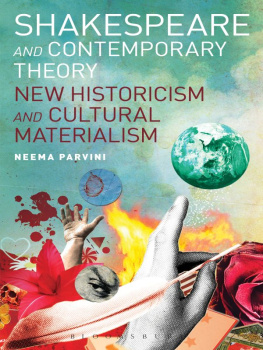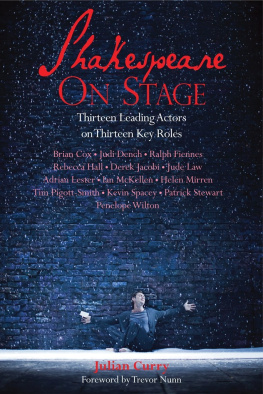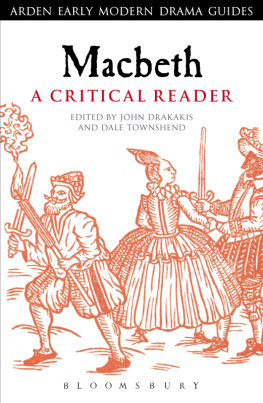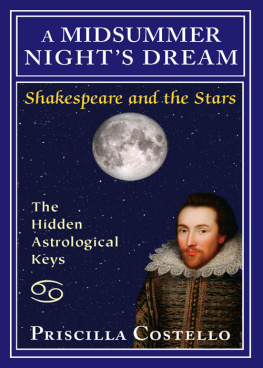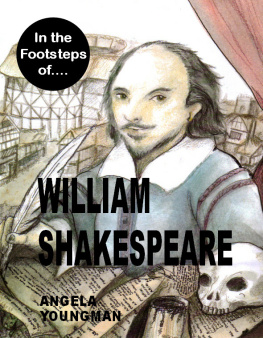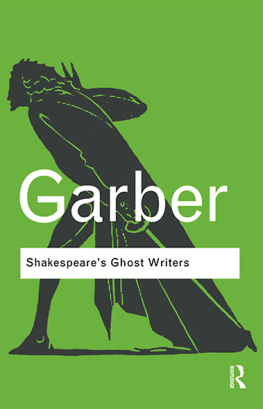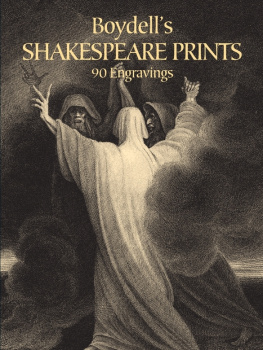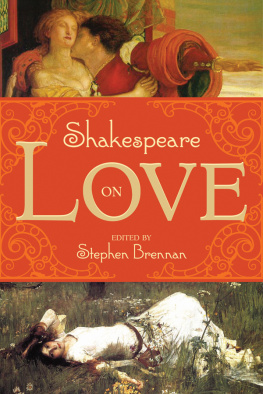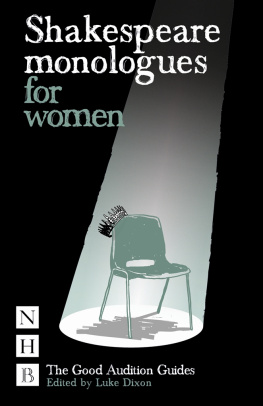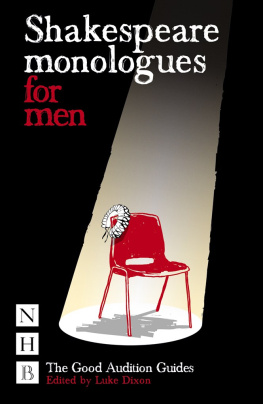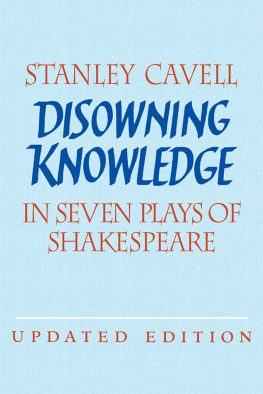Dream in Shakespeare

Dream in Shakespeare
From Metaphor to Metamorphosis
Marjorie Garber
With a New Prologue by the Author

Copyright 1974 by Yale University.
Prologue copyright 2013 by Yale University.
All rights reserved.
This book may not be reproduced, in whole or in
part, including illustrations, in any form
(beyond that copying permitted by Sections 107
and 108 of the U.S. Copyright Law and except by
reviewers for the public press), without written
permission from the publishers.
Yale University Press books may be purchased in
quantity for educational, business, or promotional
use. For information, please e-mail
(U.S. office) or
(U.K. office).
Designed by Sally Sullivan
and set in Baskerville type.
Printed in the United States of America.
Library of Congress Control Number: 2013932810
ISBN 978-0-300-19543-9 (pbk.)
A catalogue record for this book is available
from the British Library.
10 9 8 7 6 5 4 3 2 1
To Allen and Rhoda Garber
Contents
Prologue:
In a Nutshell
I could be bounded in a nutshell, declares Hamlet to Rosencrantz and Guildenstern, and count myself a king of infinite space were it not that I have bad dreams (II.ii.25456). The bad dreams, a fair enough description of his actual experience in the Danish court, are also a Renaissance symptom of melancholy. But what of the nutshell?
Nutshells were small, worthless, and fragile, proverbially the opposite of something of value (later sources often mention it hyperbolically in wagers a Noble to a nutshell, the World to a nutshell, dont stake your life against a nutshell though its always possible that some of these references are actually back-formations from Hamlet). Yet if we recall that Rosencrantz and Guildenstern are Hamlets schoolfellows (III.iv.204) and that he is almost manically on the qui vive when he meets with them, we might also suspect a second meaning to the nutshell in the form of a learned joke, whether the joke is intended to be shared with them, to go over their heads, or to be Shakespeares joke on, or with, Hamlet.
The passage in question is from Plinys Natural History, as rendered into English by the Elizabethan translator Philemon Holland in 1601:
We find in Histories, almost incredible Examples of Sharpness of the Eyes. Cicero hath recorded, that the Poem of
The parchment epic described here is a mise en abyme, an object receding into the distance, seen by someone, sometime, somewhere, but not by the current chronicler (Pliny) or the reader. Nonetheless, it had what we might call shelf life. If no one could verify it, still many quoted the story, and quoted it, indeed, in a shorthand that seemed to suggest a common reference point. Stephen Gosson, dedicating his slender antitheatrical pamphlet The School of Abuse (1579) to Sir Philip Sidney, used the nutshell Iliad as an example of value in small things: The whole worlde is drawen in a mappe; Homers Iliades in a nutte shell: a kinges picture in a pennye. But what is it doing in Hamlet if, indeed, it is there?
Bear in mind that Homers Iliad, or certain events from it, are very much on Hamlets mind at this point in the play. The Pyrrhus speech he urges the First Player to perform (lines 44694 in the same scene) and his lines on Hecuba in the rogue and peasant slave soliloquy (lines 55256 at the end of the same scene) are reflections on events in the Iliad in which a son properly avenges a murdered father and a wife properly laments the death of a husband. Hamlet castigates himself for being, instead of a man of action, a John-a-dreams (563). To be bounded in a nutshell (or enclosed within a Nutshell) is not, in other words, merely to have a small, cramped place in the world rather than to be king of infinite space, but also to be encapsulated in the dream-theater of the Iliad.
If this seems fancifuland why should it not?consider that other dream-merchant-in-a-nutshell, Mercutios Queen Mab. Mabs chariot is an empty hazelnut, and in it she gallops
Through lovers brains, and then they dream of love;
Oer courtiers knees, that dream on curtsies straight;
Oer lawyers fingers, who straight dream on fees;
Oer ladies lips, who straight on kisses dream,
[Romeo and Juliet I.iv.59, 7174]
and over the noses of parsons and the necks of soldiers, who dream, in consequence, about benefices and battles. Mab, like the Iliad of Pliny (or perhaps we should say the Iliad of Cicero), is so tiny that to see her would require incredible Sharpness of the Eyes. But she is the spirit of dream and wish fulfillment, with the mischievousness of a Puck, the instincts of a psychoanalyst, and the creativity of a theater director.
When Dream in Shakespeare was first published, in 1974, I had no premonition of how much its themes and ideas would inform the rest of my career. But now it seems as if dreams, ghosts, fantasies, conflated images, and notions of wish fulfillment have haunted almost everything Ive written, whether the topic is ghosts and ghost writers in Shakespeare, cross-dressing and cultural anxiety, dog love, or sex and real estate. Dreams, dreamers, and dream worlds have caught my attention and my imagination not only in literary texts but also in cultural performances, politics, and public affairsand in the lecture hall and the classroom. As I wrote in a recent essay on the future of the humanities, I began my own scholarly and theoretical work on Shakespeare with a book on dreams and then a book on ghosts. The logic behind both of these books was the logic of the after/before, the untimely appearance, or reappearance, of something that never seems to be fully present, but always returns. The humanities is such a dream, and such a ghost.
In the years since the books initial publication there has been a good deal of attention to sleep and dream in the early modern period from a variety of critical perspectives, including literary theory, material culture, studies of affect and emotion, cognition, and theater history. Sleep and waking constituted one of the six non-naturals of Galenic medicine (the others are food, air, motion and rest, evacuation and repletion, and the passions of the soul), and healthyor unhealthfuldreams were therefore a matter of common interest in the early modern period. An exhibition at the Folger Shakespeare Library in 2009, entitled To Sleep, Perchance to Dream, offered evidence about the belief, rituals, and habits of sleepers and the role of dream interpreters and interpretations in public life through a display of printed, handwritten, and visual materials from Renaissance England. In effect a whole field of inquiry has developed around questions of sleep, dream, cognition, imagination, fantasy specters, and phantasms. Neuroscientists, psychologists, and literary scholars are asking questions that not only are uncannily similar but also draw upon a common vocabulary and sometimes upon shared research. I have been intrigued by these developments, and by the ways in which such disparate fields in the humanities, the sciences, and the social sciences have converged to address the riddle of the unconscious and its ties to the creative imagination. But I am even more energized by what a focus on dreams and ghosts has done for our understanding of theater.
Next page


